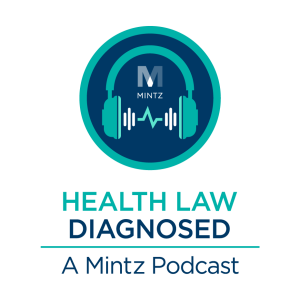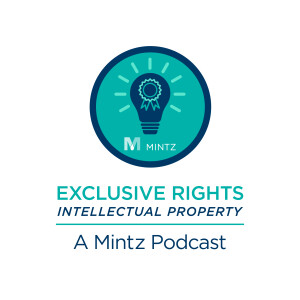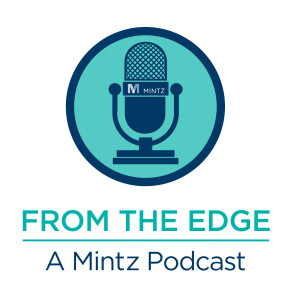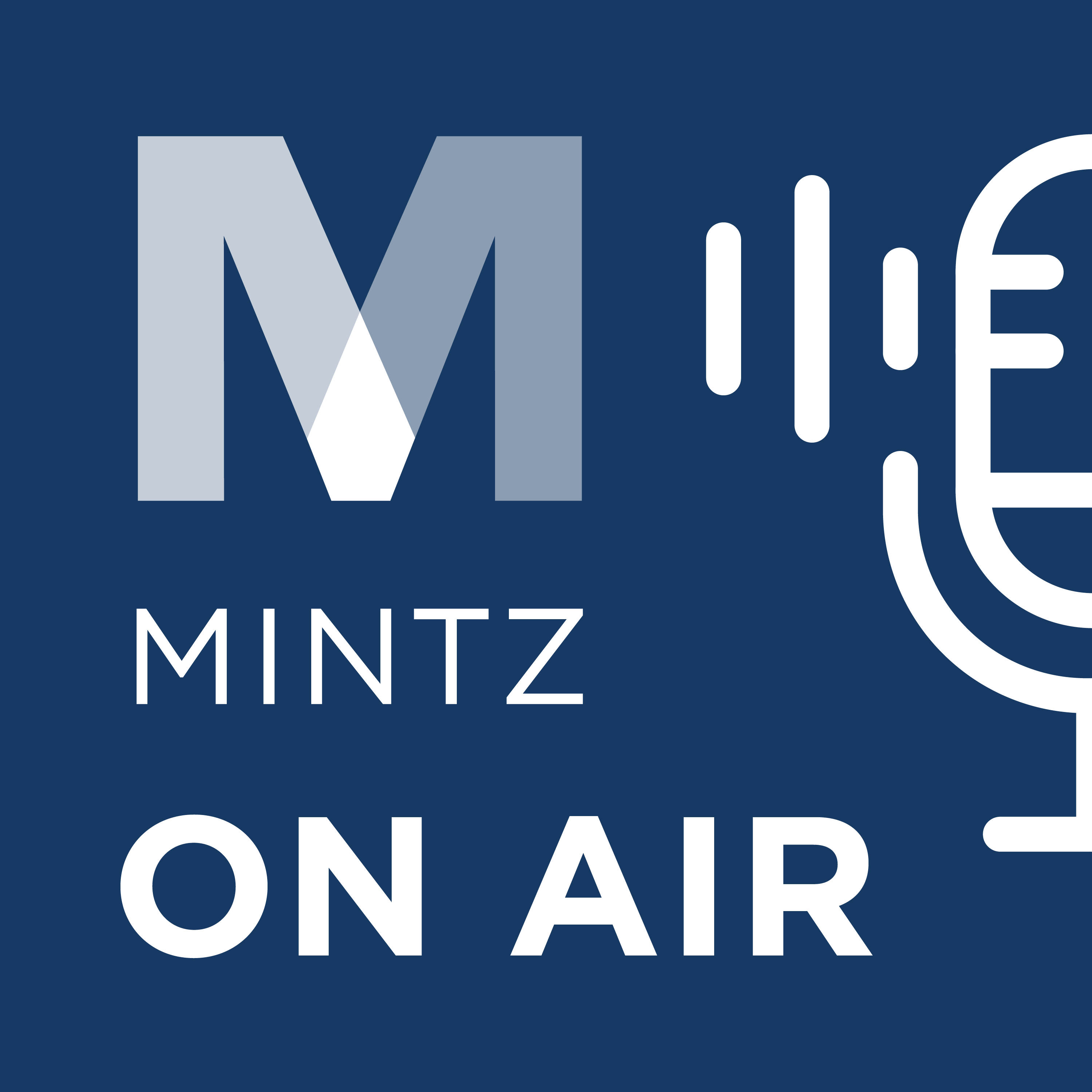Episodes

Thursday Mar 24, 2022
Thursday Mar 24, 2022
Health regulatory diligence has the ability to make or break a deal. Listen to hear about our team’s firsthand experience in the importance of conducting health regulatory diligence and best practices in preparing for a sell-side transaction.

Thursday Mar 03, 2022
Thursday Mar 03, 2022
2021 was a busy year for Mintz’s Health Law team, as they helped clients navigate complex health care transactions. Listen to hear the macro trends our team is seeing in the market, as well as their takeaways from the deals they closed.

Wednesday Jan 12, 2022
Health Law Diagnosed: Mintz’s 2022 Health Law New Year’s Resolutions
Wednesday Jan 12, 2022
Wednesday Jan 12, 2022
The Mintz Health Law team celebrates 2022 by sharing their health law–focused resolutions. Listen to how the team is resolving to apply the lessons learned from the pandemic, their industry insight, and their knowledge of state and federal government priorities and actions to help clients and colleagues thrive in 2022 and beyond.

Thursday Oct 21, 2021
Exclusive Rights: Intellectual Property - Don’t Get Caught Double Patenting!
Thursday Oct 21, 2021
Thursday Oct 21, 2021
In this episode of the EXCLUSIVE RIGHTS: Intellectual Property podcast, Mintz patent attorneys Lily Zhang and Alex Trimble, PhD, discuss double patenting, a complicated and sometimes confounding area of patent law. They break it down in layman’s terms even a non-patent attorney can understand. They highlight the risks of, and ways to avoid being hit by, double patenting rejections – and how to overcome them if they arise.
Among other topics, Lily and Alex discuss:
• The two kinds of double patenting – same invention and obviousness-type double patenting (ODP)
• Common scenarios in which ODP arises
• Using terminal disclaimers for overcoming ODP rejections
• The legal ramifications of using terminal disclaimers
• When terminal disclaimers are the right option

Thursday Jul 08, 2021
Thursday Jul 08, 2021
In this episode of the EXCLUSIVE RIGHTS: Intellectual Property podcast, Mintz Intellectual Property attorneys Andrew Skale and Daniel Weinger explore copyright protections for music and other creative works. This episode was triggered by Dan’s interest in music copyrights generally and by recent high-profile cases filed by Marvin Gaye’s estate. Dan asks Andrew what musicians, artists, and authors should be aware of when it comes to copyright protection and how to prevent problems from arising in the future.
Andrew provides an overview of these issues and digs into other copyright topics, including:
• The multipart requirements to prove ownership and infringement of a copyright
• Some famous copyright cases involving music, and what we can learn from them
• If the reputations of people like George Harrison, Ed Sheeran, and Robin Thicke are damaged by the filing (or subsequent loss) of lawsuits accusing them of infringement
• The difference between being inspired by a musician or song, and copying the inspiring work
• The necessity of a written agreement to transfer ownership of copyrights on a creative work you commission for your business (logo, photo for website, jingle, etc.)
• Why it matters that one can never “unsee” Smaug the dragon from the film The Hobbit: The Desolation of Smaug

Thursday Jun 17, 2021
Thursday Jun 17, 2021
In this episode of the EXCLUSIVE RIGHTS: Intellectual Property podcast, patent attorney Lily Zhang talks with trademark attorney Karen Won about the age-old choice between adopting descriptive brands or distinctive brands for businesses and products. As Karen tells us, trademark law is more art than science. Why is it that “bagel thins” can eventually become a trademark, but "pretzel crisps” can never be a trademark? Great question! The answer lies in trademark law's five categories into which all brand names can be sorted, each of which comes with different levels of legal protection and enforceability:
• Fanciful: Very broad, strong rights – completely invented
• Arbitrary: Broad, strong rights – an existing word that has no relation to the use
• Suggestive: Usually broad, strong rights – alludes to something about the product you are offering without spelling it out, but the boundary line with a descriptive mark is tricky
• Descriptive: No initial protection – immediately conveys information about your product, business, or both
• Generic: No protection ever
Listen to learn more about what these categories mean for you and best practice tips for naming your next product or business.

Thursday Jun 17, 2021
Health Law Diagnosed: Women in Health Law: Leadership, Mentorship, and Beyond
Thursday Jun 17, 2021
Thursday Jun 17, 2021
In this episode of the Health Law Diagnosed podcast, Mintz’s Susan Berson discusses her career trajectory, the benefits of building a diverse and inclusive workplace, why women may be drawn to health law, and the importance of mentorship and sponsorship.

Friday Jun 04, 2021
SPAC Chat Ep. 5: Tempering the SPAC Hype
Friday Jun 04, 2021
Friday Jun 04, 2021
Please join your favorite SPAC corporate attorneys, Tom Burton, Sahir Surmeli, and Jeff Schultz as they set the record straight on SPACs’ apparent boom and bust, heavily reported on in the media. In this episode, they will address the few reasons why SPAC transactions have slowed down, including the SEC’s heightened scrutiny, the question over company valuations, and recent market shifts. They will also explore the advantages now present in this new SPAC era.
The Mintz team has handled numerous multibillion-dollar SPAC transactions in recent months, including for XL Fleet and Butterfly Network, as well as the recently announced deals involving Quantum-SI, DeepGreen Metals, and Vicarious Surgical. Mintz’s SPAC practice draws from decades of experience guiding clients in a broad spectrum of industries through the intricacies of SPAC financings. The firm handled the first New York Stock Exchange SPAC transaction and has completed over 35 SPAC transactions, including SPAC IPOs and de-SPAC mergers.

